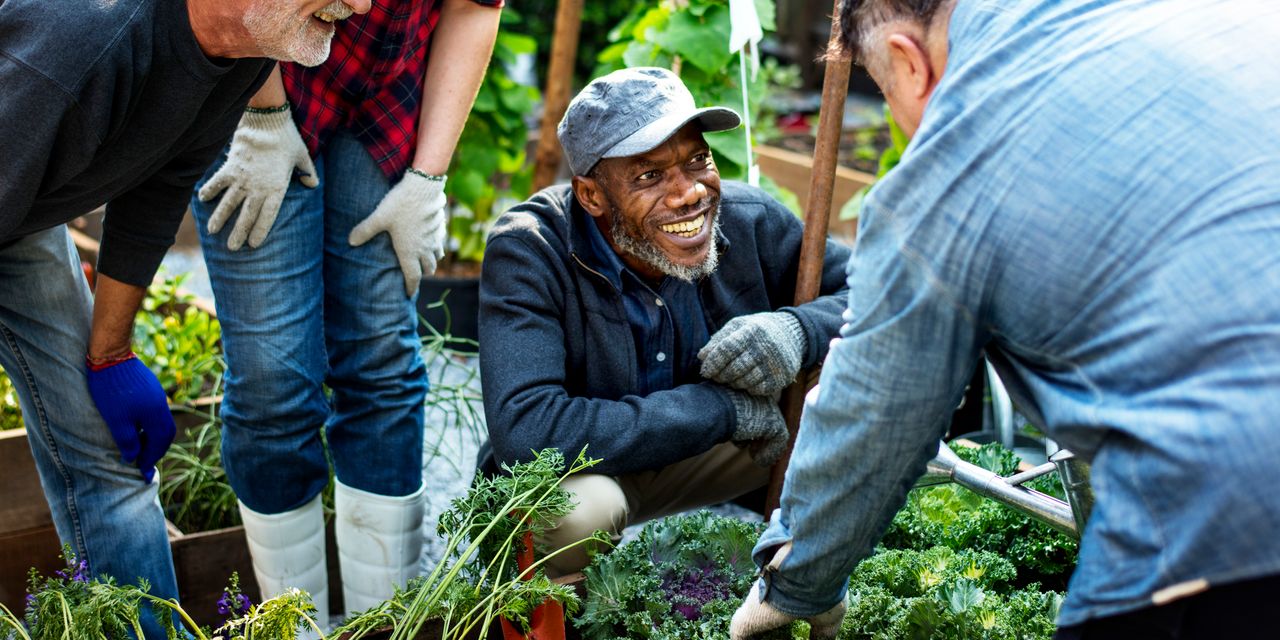This article is reprinted by permission from NextAvenue.org.
Craig Coleman of Springfield, Vermont, believes that volunteering is a way to live the Golden Rule. He certainly acts on that belief, volunteering with Meals on Wheels, Senior Solutions, Volunteers in Action (VIA), and the Vermont Association for the Blind and Visually Impaired, which honored the 76-year-old Coleman with its President’s Award earlier this year.
““Volunteering adds more years to your life — and life to your years.””
Volunteering, he says, has deepened his spirituality and allowed him to express his personal faith.
Coleman exemplifies the millions of older Americans who donate their time to serving others. According to AmeriCorps’ most recent survey, 30.7% of boomer-age Americans (those 56 to 74 years old) and 36.4% of GenXers (aged 40 to 55) volunteered in 2019, contributing about four billion hours of service to their chosen causes.
Giving is good for your health
“Older Americans give community organizations consistent support and those served feel comfortable with trusted community members,” says Atalaya Sergi, director of AmeriCorps Seniors.
At the same time, a growing body of research suggests that older adult often reap significant mental and physical health benefits by volunteering, including lower mortality rates, increased strength and energy, lower rates of depression and fewer physical limitations.
“Volunteering adds more years to your life — and life to your years,” Sergi says.
Carnegie Mellon University researchers found that older adults who volunteered were less likely to develop high blood pressure (which contributes to heart disease and stroke) than those who didn’t volunteer. A 2021 article in the scientific journal Aging, Neuropsychology, and Cognition reports that volunteering was associated with better working memory and improved cognition among 91 volunteers aged 65 to 75.
“We like the term do good, feel good — meaning service to others helps others and their communities but also helps the volunteer,” says Cathy Aliberti, director of the Green Mountain Retired Senior Volunteer Program (RSVP), a program of AmeriCorps Seniors. “Our volunteers are age 55 or older, with an average age of 74. They have the time, experience, and drive to volunteer and help their communities. It is a reason to get up and ready for the day. There is a wellness benefit by engaging with others.
Read: Need ideas for your retirement ‘second act’?
Caring before and after COVID-19
Naturally, volunteering has changed a bit in the past few years. Before COVID exploded, about one-fourth of Americans aged 65 or over volunteered, logging twice the number of hours than those aged 16 or younger, according to Bureau of Labor Statistics data.
Many nonprofits struggled during the pandemic as fundraising events were canceled and donations fell. But the Points of Light Organization reports that 95% of surveyed persons truly want to be involved in their community in some way. There is a strong interest in working with nonprofits that will address long-term issues arising from COVID, such as food insecurity and healthcare.
“The pandemic wasn’t the start of changes in volunteering, but it did accelerate changes,” says Rachel Kestner, vice president of marketing at Volunteer Match. “Some organizations had embraced virtual volunteers particularly for board membership and skills-based projects while others had to adapt to survive.”
Remote volunteer work grew considerably in March 2020, when COVID lockdowns began. A Volunteer Match survey found that the number of virtual volunteer opportunities jumped 32% in that one month; they rose another 12% by the end of May 2020.
Read: Depression, isolation, loss of purpose: Could retirement be bad for your mental health?
Annie Erwinski, 76, volunteered as an RSVP driver in southwestern Vermont before COVID. She currently grocery shops for people who are unable to do it for themselves, and she knits hats and makes lap quilts for residents at the local veterans home.
“I like to keep involved,” she says. “Retirement can be pretty boring and it’s a good way to stay in touch with other people. I have met really interesting and amazing people through volunteering.”
Also on MarketWatch: How an allergy inspired this couple’s retirement ‘second act’
How can you help?
Opportunities to volunteer are plentiful, Kestner says. “There are so many ways to give back and everyone has something to give. Volunteers are needed for things as simple as writing letters, visiting with people and talking on the phone.”
She adds that if you feel overwhelmed by the state of the world, “getting involved in causes like the environment, social justice and healthcare access can help you feel connected to people who are out there making a difference.”
Education and the arts were hit hard by the pandemic and to rebuild these institutions can be a way to move forward and regain some sense of control. You could begin by contacting local nonprofits or find a position through organizations such as VolunteerMatch that connect willing volunteers with nonprofits.
Here are a few other places to look for volunteer opportunities:
- Canine Companions Breed or raise Labrador and golden retrievers as service dogs for people with disabilities.
- Habitat for Humanity Build houses for families in need. Care-A-Vanners travel in RVs to rebuild disaster areas.
- National Park Service Aggregates opportunities at national parks and other recreation sites all over the U.S.
- Points of Light A database of volunteer opportunities throughout the world.
- AmeriCorps Seniors Openings in local communities, from being a foster grandparent to building playgrounds.
- USO This nonprofit’s 30,000 volunteers support military service members and their families.
- International Volunteer HQ For a fee, arranges volunteer work abroad in fields like construction, conservation and teaching.
Rosie Wolf Williams is a freelance writer whose work has appeared in USA Weekend, Woman’s Day, AARP the Magazine and elsewhere.
This article is reprinted by permission from NextAvenue.org, © 2022 Twin Cities Public Television, Inc. All rights reserved.
More from Next Avenue:
